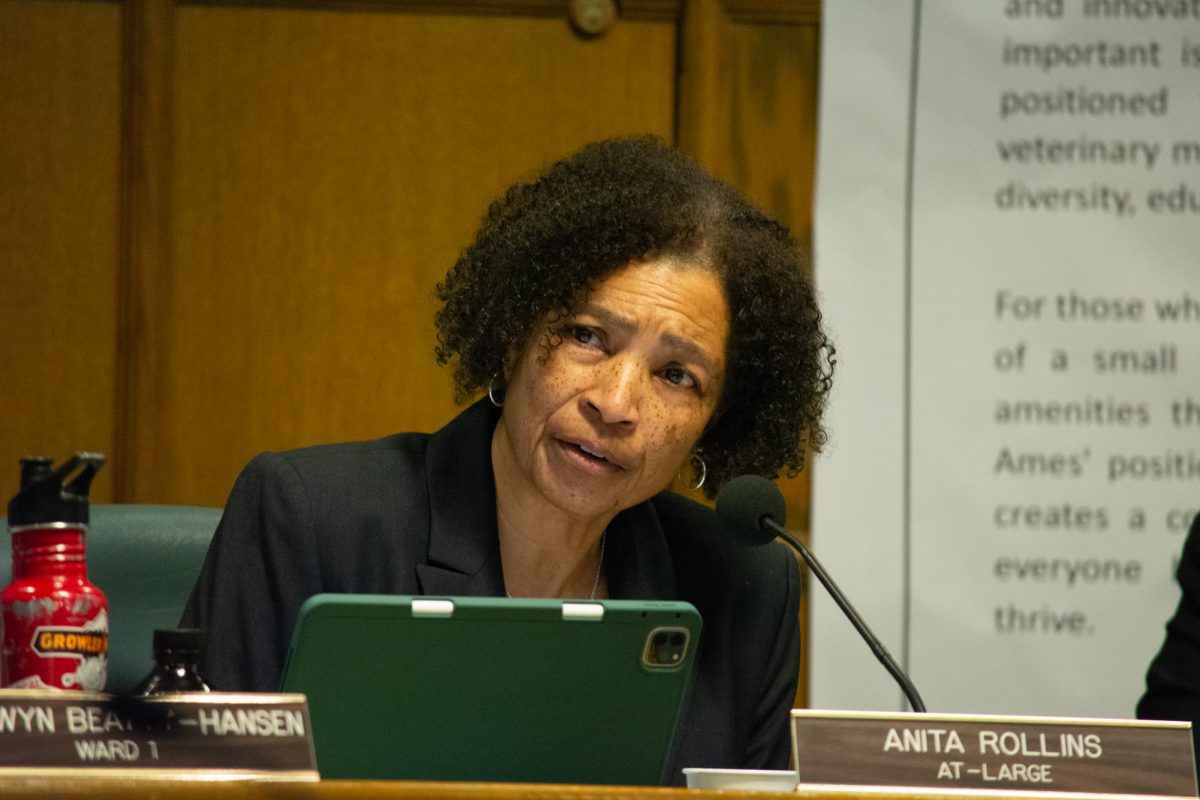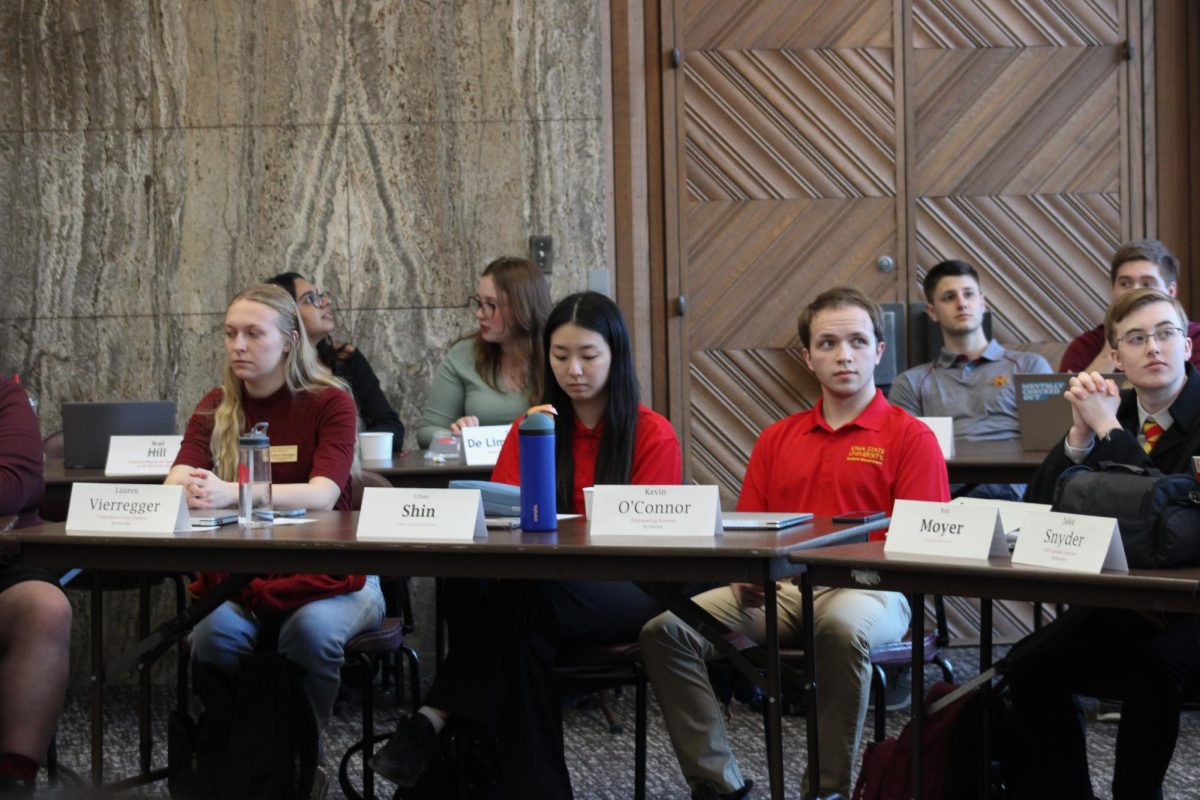Recently approved education appropriations from the Iowa Legislature include a 2.5% increase in funding for the state’s university system and prohibitions on diversity, equity and inclusion (DEI) offices at Regent universities.
The Senate passed an amendment to SF 2435, Iowa’s education budget bill for the upcoming year April 18. The bill allocates nearly $1 billion for the three Regent universities, the Iowa Department of Education, the Department for the Blind and other education-related programs.
The amended legislation also prohibits the establishment, maintenance and funding of DEI offices at state universities, however, DEI initiatives and programs required by state or federal law or to meet accreditation requirements are still allowed.
The bill defines DEI offices as a “division, office, center, or other unit of a public institution of higher education that is responsible for creating, developing, designing, implementing, organizing, planning, or promoting policies, programming, training, practices, activities, or procedures related to diversity, equity, and inclusion.”
Offices staffed by licensed attorneys and legal staff “operating with the sole and exclusive mission of ensuring legal compliance with the public institution of higher education’s obligations” are excluded by the legislation.
Academic departments within a public institution of higher education, offices solely engaged in new student recruitment and registered student organizations are also excluded from the bill’s definition of a “DEI office.”
SF 2435, if signed by Gov. Kim Reynolds, would establish “restrictions related to diversity, equity, and inclusion efforts of institutions of higher education governed by the state board of regents,” which includes providing penalties and effective date and applicability provisions.
DEI efforts are defined in the bill and include promoting policies and procedures designed or implemented with reference to race, color or ethnicity and influencing the composition of faculty or student body with reference to race, sex, color or ethnicity, apart from ensuring colorblind and sex-neutral admissions and hiring in accordance with anti-discrimination laws.
Regent universities are prohibited under the legislation from expending any funds to support a DEI office, which the bill states will not be construed to cover or affect academic course instruction or research, student organization activities or arrangements for guest speakers or performers.
The bill states that, at the close of the fiscal year beginning July 1, 2025, all unexpended money appropriated by the general assembly for the fiscal year that would have been spent on DEI offices or officers on or after the effective date are reallocated to the Iowa workforce grant and incentive program fund.
Many of the requirements by this measure have already been enacted at Regent universities under previous Board of Regent action.
At a Faculty Senate meeting April 23, Senior Vice President and Provost Jonathan Wickert shared an update on the education appropriations in relation to Regent universities.
“I know that you are concerned, that your colleagues are concerned, about this development, and I share those concerns, and the president shares those concerns as well,” Wickert said. “We are still in the mode of trying to understand this legislation, and what it means.”
Wickert said the legislation is a legal document and has to be read as such and that the university will learn more about what it means in the coming weeks and months.
“You have to remember that this amendment surfaced in the Appropriations Subcommittee on a Tuesday of last week,” Wickert said during a Faculty Senate meeting Tuesday. “It was voted on by the House and the Senate and approved on Thursday, and then the legislature wrapped up at the end of Friday. So that’s a rapid passage of something.”
According to Wickert, the president and the Office of General Counsel met with the president’s focus group for Regent DEI directives, directors of multicultural student success, assistant and associate deans, faculty, success advisors and department chairs to discuss the bill’s implications and to make people aware of its existence.
“I think it’s important to remember that we’re still in a very early stage of this and so really do not have many answers for what the implications will be for us,” Wickert said. “The good news is that we have a year or two to work through it, and we have time to have conversations with legislators in the board office to understand what those implications may be and to make any adjustments that we need to make on our campus. But you know, that says we are committed to having a campus culture that supports the educational success of every single student on campus.”
Since its founding, Wickert said Iowa State has been committed to being a campus that supports every faculty and staff member on campus and has a welcoming and supportive environment.
“I think we’re in a period of some uncertainty,” Wickert said. “And I would just ask for your patience as we work through this and try to understand exactly what it means and what we need to do.”




















Agnostic Grammarian | Apr 30, 2024 at 8:15 am
“The amended legislation also prohibits the establishment, maintenance[,] and funding of DEI offices at state universities, however, DEI initiatives and programs …”
“but” and “however” have the same meaning; HOWEVER, they are punctuated differently when used to join complete sentences: “but” follows a comma and is not followed by any punctuation. HOWEVER, “however” follows a period or semicolon and is followed by a comma.
Sparky | Apr 30, 2024 at 11:15 am
ok